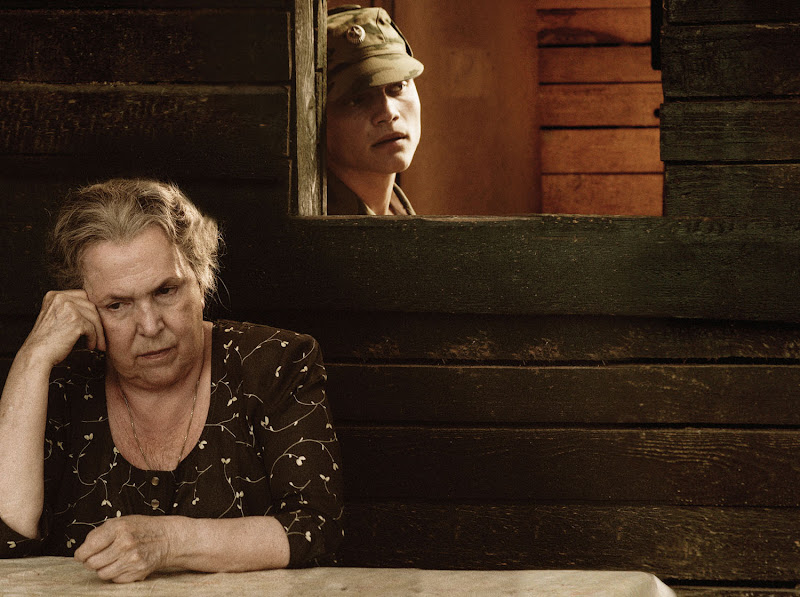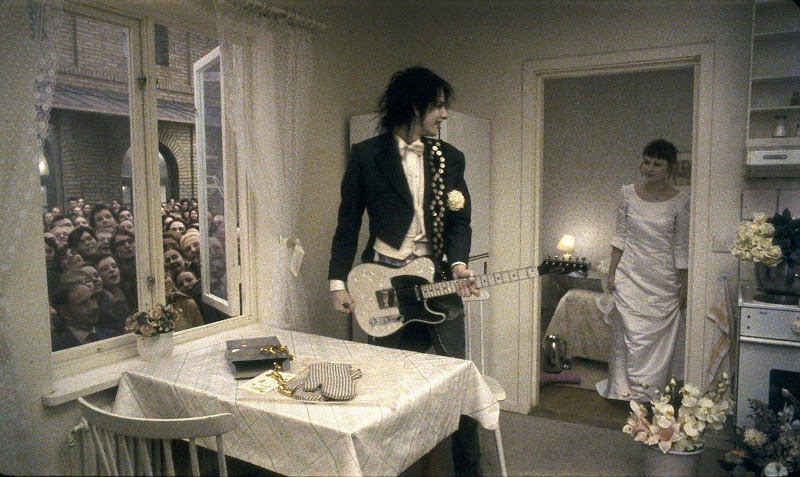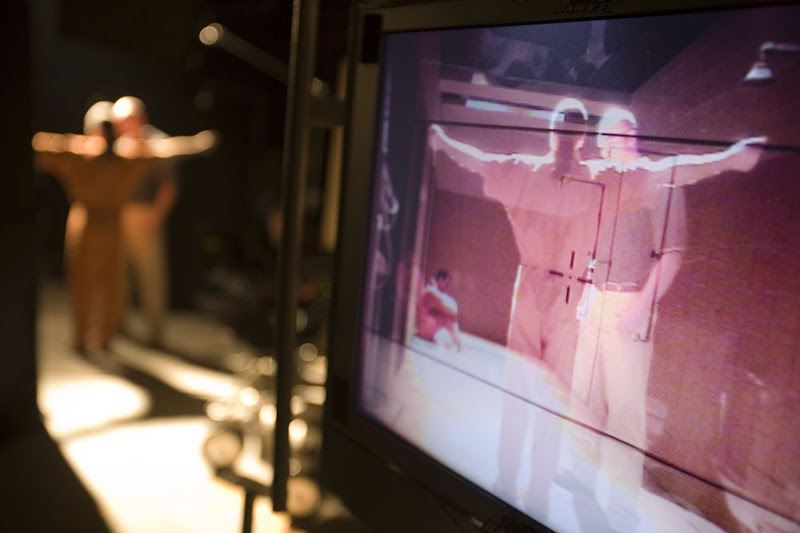|
The 51st San Francisco International Film Festival (SFiFF51) is now on its half way mark. I have seen some great films, as well as some disappointing ones. That's actually a great fun part of attending a film festival—I get a chance to see some films that otherwise I would not skipped. Besides, this might be the only chance to see some of these films on a big screen.
Because many films have a "hold review" request, the following is a brief recap about some of the films I have seen so far at the festival. More to come later.
- Alexandra (Александра)
Watching "Alexandra (Александра)" (Russia 2007, 90 min.) is an absolutely gratifying experience. With beautiful visual, fantastic music score, and flawless performance by Galina Vishnevskaya (Гали́на Вишне́вская) as Alexandra, the film tells a story about war and humanity.
The audience will appreciate this film not only for its unique philosophical way of looking at the war and peace, but for its impressive performance and filmmaking.

- 1000 Journals
"1000 Journals" (USA 2007, 88 min.) is a fascinating documentary about a social and cultural experiment. "Someguy" from San Francisco (where else?) unleashes 1000 blank journals to the world. People start to write on them, pass around, make art, pick up fights, change other's entries, and do pretty much everything else. Some of the journals are returned, most of them are not. The projects make graffiti leave restroom walls or classroom desks and travel around the world.
Are we all artists when we have a secret place to express ourselves?

- Fados
If you don't know what fado is, after the musical documentary "Fados" (Portugal/Spain 2007, 93 min.), you will fall in love with fado.
From acclaimed Spanish director Carlos Saura,
unlike any other documentary, this film does not have any talking heads, nor voice over narratives, nor story lines. It simply puts a few most fantastic fado pieces together, accompanied with splendid choreography and carefully arranged color and background. The film lets fado speak (or sing) for itself.
And it works, wonderfully.

- In the City of Sylvia (En la ciudad de Sylvia)
The filmmaker from "In the City of Sylvia (En la ciudad de Sylvia)" (Spain 2007, 84 min.) describes this film as:
"A boy in a city is looking at one girl.
Later, he looks at another one, and another one..."
Well, indeed. That's all this movie is about, with many long shots of this boy (young man actually) following or looking at a girl, one after another one.
I vividly remember those long shots in many films by Tsai Ming-liang (蔡明亮). Those standing still long shots in Tsai's film mean something to me and to character developments. However, I need more time to digest those long takes in this "In the City of Sylvia." I don't think I am getting it so far.

- You, the Living (Du Levande)
The funniest film I have seen so far at the festival is "You, the Living (Du Levande)" (Sweden/Germany/France/Denmark/Norway 2007, 90 min.). It's a comedy about the "greatness and miserableness of human beings."
The characters in the film are strange, yet real; funny, yet pathetic; miserable, yet full of hope. It mixes drams with reality, musical with drama, and stage theater with cinema, to create a film that is extremely fresh and original.
This is a lovely film that not to be missed, but probably only can be seen at a film festival such as SFiFF.

- Standard Operating Procedure
Just thought we have already heard and known so much about Abu Ghraib prisoner abuse, Academy-winning director Errol Morris's new documentary "Standard Operating Procedure" (USA 2008, 117 min.) takes another look at the story behind those horrific photographs.
It's remarkable and fascinating to hear soldiers who were present or even took those pictures telling their stories first hand. Why did they take those pictures? Why is taking the pictures a crime while torching is not? What's really going on behind these photographs?
This is a superb documentary even its subject matter is something people try to forget, or already forget.

- Up the Yangtze (Canada 2007, 93 min.)
Chinese-Canadian filmmaker Yung Chang's documentary "Up the Yangtze" (Canada 2007, 93 min.) takes us to an unforgettable journey up the stream of Yangtze River (长江) on a luxury cruise boat. Using the construction of Three Gorges Dam (长江三峡大坝) as the backdrop and focusing on two young protagonists who work on a cruise boat, the film tells the human side of the story of the changing China. It takes a closer look at the social and economical impact from the rapid development in China.

|






